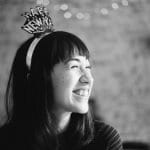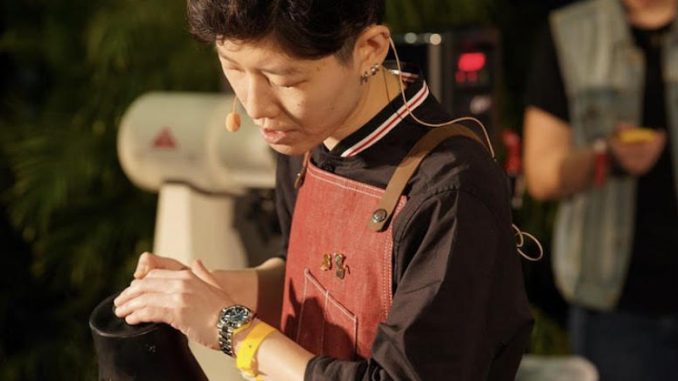
We chat with Peace, a coffee competitor and manager at Coffee Project New York.
BY KATRINA YENTCH
BARISTA MAGAZINE ONLINE
Photos courtesy of Peace Sakulclanuwat
Sirada Sakulclanuwat (she/her), or Peace as most of us know her, is one of the most easygoing and affable folks in coffee that I’ve befriended during my time in this industry. We met midway through her coffee journey as baristas at Partners Coffee (or Toby’s Estate as it was known at the time) and instantly connected through our Thai heritage, as well as a love for the “motherland” as a coffee-growing region. Flash forward from 2017 to 2021, and Peace has skyrocketed since the start of this coffee journey. From transitioning out of the restaurant industry to landing 17th at the U.S. Brewers Cup on the first try during the 2020 U.S. Coffee Championships, Peace has let the world know that she is 100% dedicated to coffee as a lifetime career—and she’s got the credits to prove it. We talked to Peace about what got her into coffee, her current role with Coffee Project New York (whose owner is featured in our latest print issue), and the honor she felt presenting Thai coffee on the competition stage.
Note: This interview has been condensed for brevity.
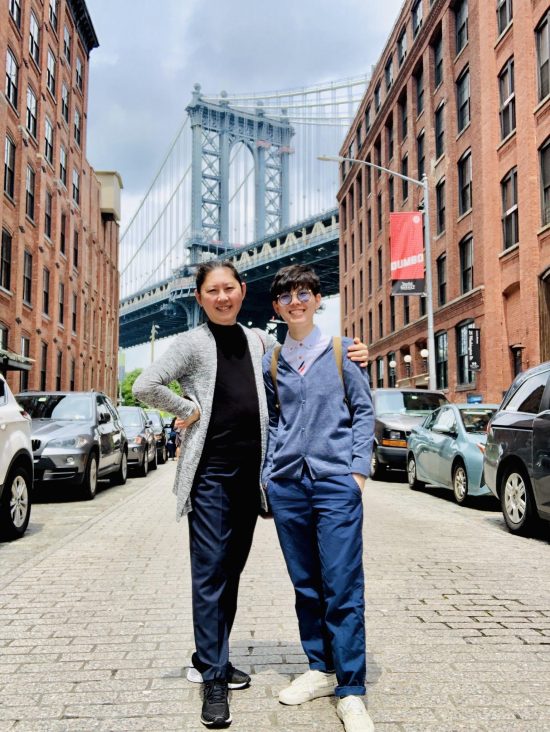
Katrina Yentch: I realized that in the time we’ve known each other, I’ve never actually asked where you truly got started in coffee before Partners. Can you give me a little backstory?
Peace Sakulclanuwat: When I came here (New York City), my family business back in Thailand was a restaurant. So I grew up around the restaurant business and everything, and when I came over here of course my mom and dad want me to pursue something different, something a little more secure in terms of career, professional path. I went to John Jay College of Criminal Justice. I did not like it or enjoy it, so I went to school full time but part time I also work at a restaurant.
I continued working in restaurants even though I’m already here, and when I graduated my mom opened a Thai restaurant with her business partner. So I end up helping her instead of doing something with my degree, because at the time I didn’t really feel like what I studied but I just wanted to earn a degree. I was dating my ex-partner at the time, so she was encouraging me, alright, if you do not want to do anything with your degree what do you like or enjoy the most—what do you want to do in life?
I sit and think back—well I’ve already been working in hospitality and restaurants but I don’t want to work in restaurants. When we were dating we like to go to different coffee shops. So we tried and (thought) what do we like about this place and why do we enjoy this cup of coffee from this place? I realize, oh yeah! I like to go to different coffee shops and try different coffee and watching baristas behind bar pour me a beautiful latte art. Maybe I like that! Maybe I’ll give it a try!
We found this place called City Bakery. They were actually known for hot chocolate; every day they had a different flavor. The reason I applied there was because I knew they were using Counter Culture Coffee. Even though it’s not a real coffee shop I barely made any coffee or got sent to classes with Counter Culture. Then I got transferred to another location in SoHo to be a manager.
At this time Stumptown Coffee happened to be looking for some barista to hire so then I went to the location in West Village. My position wasn’t a barista on the café side. They have another room in the back called a brew bar. I got hired to be a brewer, making all the pourovers. It’s much slower-paced and they were saying since my palate isn’t fully developed to pick any notes, it’s a perfect position for you and you can cup all the coffees we have and you can start writing down what you taste. And then it was like even though you want to be a barista, you get to learn the actual coffee. So I ended up liking it more than working on the café side. I think that’s how I had the passion for brewing coffee. I think it’s a very good skill for me to have and to have started in my career.
I think because of the whole experience I had with Stumptown and their education program, the way they trained me, and the manager at the time, I learned so much from everyone back then. All my habits and the way I work behind bar I picked up from most of the people in Stumptown.
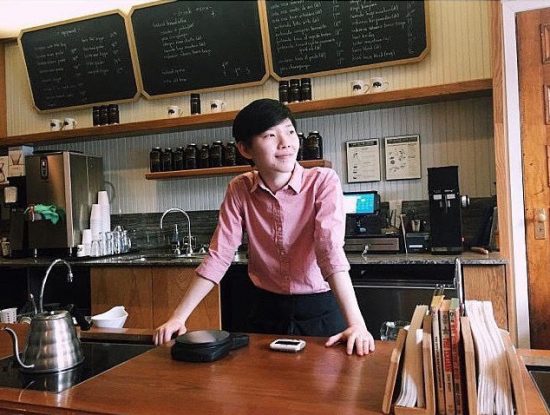
So what was the main reason you decided to start competing in 2020?
So many times I tried to apply to so many different positions in coffee. After I left Stumptown I really wanted to work in some kind of production department. I don’t want to work in front of house anymore. I wanted to be an educator or maybe learn how to roast or be a production person. Just give me a coffee and I can bag it because I’m sick of working in front of house. I always got turned down because they said, “Oh you’re a female. I don’t think you’ll be able to carry a 50-pound bag of coffee or that you’re strong enough.” Second thing, they said you don’t have enough experience. You need to work on yourself more, but I said, “If you don’t give me the opportunity to learn a different path how am I supposed to get that experience pulling shots and serving people FOH?”
I feel like I never had that experience, and nobody handed me those experiences, until I came across (the coffee competition program) Glitter Cat Barista Bootcamp. When I read through the application I felt like I could just be myself. I wanted to challenge myself to put myself out of my comfort zone, to boost myself and prove I could do something more. Being a lead at Starbucks at the time, I managed people and that was it. Day-to-day, it was really boring and I felt like I had no purpose in life. At the same time, my mom was also still really hoping that one day I would quit working in coffee and go back to my professional career.
But then I feel like maybe I can use this competition as a platform to speak up for myself and to prove to my mom this is something that I really want to pursue. This is something I’m really passionate about and I can grow. I never thought of myself doing anything besides coffee. It’s the only job that I don’t feel like, “I don’t want to wake up, I don’t want to go to work.” I always enjoy waking up (for coffee) and doing something I enjoy.
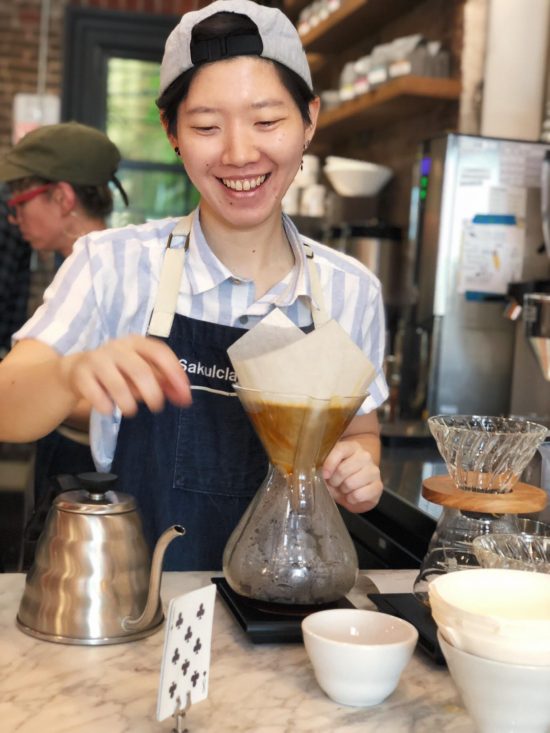
How is that changing the way you brew coffee every day?
I just want every cup that I brew to be a good cup of coffee that people can enjoy. I think when I competed and when you have to speak to the judges, you have to treat them like customers, not like they’re judges. I learned how to put myself into another person’s shoes to understand their perspective as people who don’t know anything about coffee, how you’re going to communicate that for someone who doesn’t know anything about it to understand what you’re doing. I think it helped me to translate the coffee language for an ordinary person to understand what we’re doing.
We will continue this interview next week.

